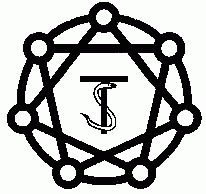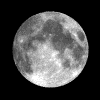TrueSight Journal Excerpts
Stay Updated on Our Activities Through Our Journal
We are very pleased to present excerpts from the TrueSight Journal, a tradition since 1959. The Journal includes teachings, practices, logia from the Gospel According to Thomas, animal stories, humor, history, and selections from other traditions.
Beginning in September 2004, the TrueSight Journal will become an electronic newsletter, published quarterly on this website. A subscription costs $12.00 per year. Copies of archived Journals are available for $3.00 each by sending an email request to truesight.church@gmail.com.

~ Letters From the Readers ~
I must tell you that observing and being aware of ego has been very enlightening. I did not realize how much it controlled my behavior. It seems when I am angry, or anxious (afraid), or if I’m feeling like I’m better than others, and I acknowledge ego, the feelings dissipate quickly. I know that ego is responsible. It does, too and doesn’t mind relinquishing control. It seems as relieved as I am. When I was younger (20-21), I told a teacher of mine that when I got anxious in front of someone, I found it hard to walk without feeling awkward. I asked her how I could overcome this. She told me to put one foot in front of the other. LOL
I laughed then, too… but it worked! Observing ego has the same effect. I hope this clarity continues.
Thanks
Logion 28
Jesus said, "I took my stand in the midst of the world, and I appeared to them in the flesh. I found all of them intoxicated; I found none among them thirsty. And my soul was pained for the sons of men, because they are blind in their hearts and do not see that empty they have come into the world, and empty they seek to go out of the world. But now they are drunk. When they have shaken off their wine, then they will repent."
If you’ve lost your sense of humor:
A drunk stumbles across a Baptismal service on a Sunday afternoon down by the river. He proceeds to stagger down into the water and stands next to the Minister. The Minister turns, notices the old drunk, and says, “Mister, are you ready to find Jesus?”
The drunk looks back and says, “Yes, sir, I am.”
The Minister then dunks the fellow under the water and pulls him right back up.
“Have you found Jesus?” the Minister asks.
“No!” said the drunk.
The Minister then dunks him under for quite a bit longer, brings him up and says, “Now, brother, have you found Jesus?”
“No, I have not!" said the drunk.
The Minister holds the man under for at least 30 seconds this time, brings him up, and demands, “For the grace of God, have you found Jesus yet?!!!??”
The old drunk wipes his eyes and pleads, “Are you sure this is where he fell in?”
If you’ve lost your sense of humor, you’ve lost your way.
The spiritual quest is a journey without distance.
You travel from where you are right now to where you have always been; from ignorance to recognition, for all you do is see for the first time what you have always been looking at.
“When the doors of perception are cleansed, things will appear
to man as they truly are – infinite.”
~~ Aldous Huxley
email: truesight.church@gmail.com

Old Journal 2
Questions to the Teacher
Q. How can we work on the things in us that are hidden? If they're hidden, how do we uncover them if we don't even know where to look?
A. You don't need to "worry" about that which is hidden because it will reveal itself as you practice. However, your intention to uncover it will certainly engender and strengthen the process. The discovery process is quite organic in that it ripens in its own time and as a direct result of your practice.
There's an analogy that has been used to describe this process - soup. You have meat and carrots and potatoes and the basic broth that it all cooks in. Then you apply heat and, after an appropriate time to cook, you finally have something edible. In this case, the meat and vegetables are your habits, and subconscious and unconscious 'thingies'. The broth is your fundamental style of mind, and the heat you apply is your practice. The Teacher can see your process - your 'cooking' - and guide you appropriately, including applying more heat or 'poking the vegetables' to see if they're tender enough. Then, at the moment of perfect tenderness, wisdom is revealed - you 'eat' your own soup. Perhaps you'll even share it with the rest of your fellow practitioners and we all can partake in the feast with you.
DO IT YOURSELF DEPARTMENT
Pick a color, any color! Make it a simple color like red, blue, yellow, or green. Throughout your day, notice this color in all its variations, wherever and whenever it appears.
The Secret of Heaven and Hell
The old monk sat by the side of the road. With his eyes closed, his legs crossed and his hands folded in his lap, he sat. In deep meditation, he sat. Suddenly his zazen was interrupted by the harsh and demanding voice of a samurai warrior. "Old man! Teach me about heaven and hell!"
At first, as though he had not heard, there was no perceptible response from the monk. But gradually he began to open his eyes, the faintest hint of a smile playing around the corners of his mouth as the samurai stood there, waiting impatiently, growing more and more agitated with each passing second.
"You wish to know the secrets of heaven and hell?" replied the monk at last. "You who are so unkempt. You whose hands and feet are covered with dirt. You whose hair is uncombed, whose breath is foul, whose sword is all rusty and neglected. You who are ugly and whose mother dresses you funny. You would ask me of heaven and hell?"
The samurai uttered a vile curse. He drew his sword and raised it high above his head. His face turned to crimson and the veins on his neck stood out in bold relief as he prepared to sever the monk's head from its shoulders.
"That is hell," said the old monk gently, just as the sword began its descent.
In that fraction of a second, the samurai was overcome with amazement, awe, compassion and love for this gentle being who had dared to risk his very life to give him such a teaching. He stopped his sword in mid-flight and his eyes filled with grateful tears.
"And that," said the monk, "is heaven."
~Author Unknown
What lies behind us and what lies before us are tiny matters compared to what lies within us.
~ Oliver Wendell Holmes ~
ONLINE
Since many of us are online, we thought it would be a good idea to include a section for favorite websites. If you would like to have your favorite websites included, please let us know. You can email us at paxdog@juno.com.
Old Journal 3
Animal Stories

By ordinary standards Pax would be considered a less than remarkable German Shepherd runt of a dog. By standards of heart and kindness, he was an amazing being who touched everyone who came into contact with him. He constantly displayed remarkable intelligence, patience and compassion.
I used to buy bones from the butcher for Pax, big juicy leg bones that he would enjoy for hours on end. It was one of the small ways I could repay the kindness and generosity he always showed. On this particular day in 1977, I had just given Pax one of these bones when the local bookstore called to say the book my teacher had ordered was in. Pax was always invited to go with me wherever I went, but rather than ask him to leave his new bone behind, I decided to leave him with his bone for the few minutes we would be gone.
Poetry
Come, come, Wanderer, worshipper, lover of leaving.
It does not matter.
Ours is not a caravan of despair.
Come, come though you’ve broken your vow a thousand times.
Come yet again, come, come.
…Rumi
SEMANTICS
Since this is an oral tradition, the meanings of the words we use are of great importance. Both out of respect for the lineage and a desire to best impart the teachings, we have decided to include in each issue an exploration of the words we use.
Judgment: the act of judging; the operation of the mind, involving comparison and discrimination, by which a knowledge of the values and relations of things, whether of moral qualities, intellectual concepts, logical propositions, or material facts, is obtained; the act of determining what is conformable to law and justice; the mandate or sentence of God as the judge of all; that act of the mind by which two ideas are compared for the purpose of ascertaining their agreement or disagreement; the final award; the last sentence; an opinion formed by judging something; the cognitive process of reaching a decision or drawing conclusions
Discernment: the power or faculty of the mind by which it distinguishes one thing from another; power of viewing differences in objects and their relations and tendencies; penetrative and discriminate mental vision; acuteness; sagacity; insight; keenness and accuracy of mental vision; seeing deeply into a subject; tracing out minute distinctions of thought; the cognitive condition of someone who understands; perception of that which is obscure; perceptiveness
Discrimination: the contrasting of opposite thoughts; the act of noting and marking differences; the state of being discriminated, distinguished, or set apart; the faculty of nicely distinguishing; acute discernment; the cognitive process whereby differences between two or more stimuli are perceived
Distinguish: to separate by definition of terms or logical division with regard to difference; to mark off by some characteristic; to differentiate: to recognize or discern by marks, signs, or characteristic quality or qualities; to know and discriminate (anything) from other things with which it might be confounded; to make eminent or known; to confer distinction upon; mark as different; detect with the senses; make conspicuous
An Age is called Dark not because the light fails to shine,
but because people refuse to see it.

